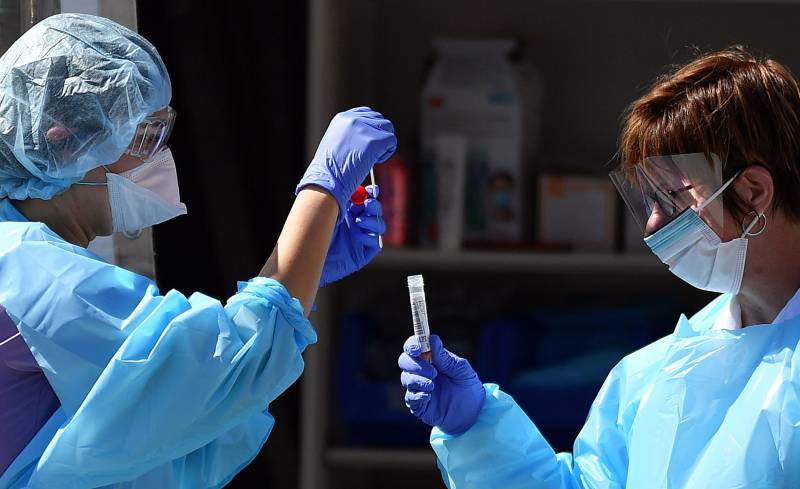As California continues to ride its worst wave of the COVID-19 pandemic, public health officials have more unsettling news: Six cases of a worrisome, potentially more infectious new coronavirus variant have been detected in California.
The new strain, first detected in the United Kingdom, also has been seen in Colorado and Florida and 33 other countries.
Last week, San Diego County reported it had identified the new variant, called B.1.1.7, in a 30-year-old man with no travel history. Gov. Gavin Newsom announced the discovery in a livestreamed event with Dr. Anthony Fauci, a leading national voice in the pandemic. Over the weekend, San Diego County health officials reported three additional cases.
Fauci said this news was expected, since international travel is ongoing and viruses generally mutate. “RNA viruses, they make a living out of mutating,” he said. “The more you replicate the more you mutate.”
However, the lack of travel history in the San Diego case is an indicator that the new form of the virus is circulating among the community, health officials there said. By Monday, the number of cases with the new variant had grown to six – four in San Diego, with one hospitalized, and two in San Bernardino, the governor announced.
“What’s really important is that detecting this lineage here doesn’t really change what we need to do other than we need to do it better,” Dr. Kristian Andersen, an infectious disease and genomics expert at Scripps Research in San Diego, said in a news conference. That includes wearing masks and maintaining social distance.
Here’s what we know so far about the new coronavirus strain.

